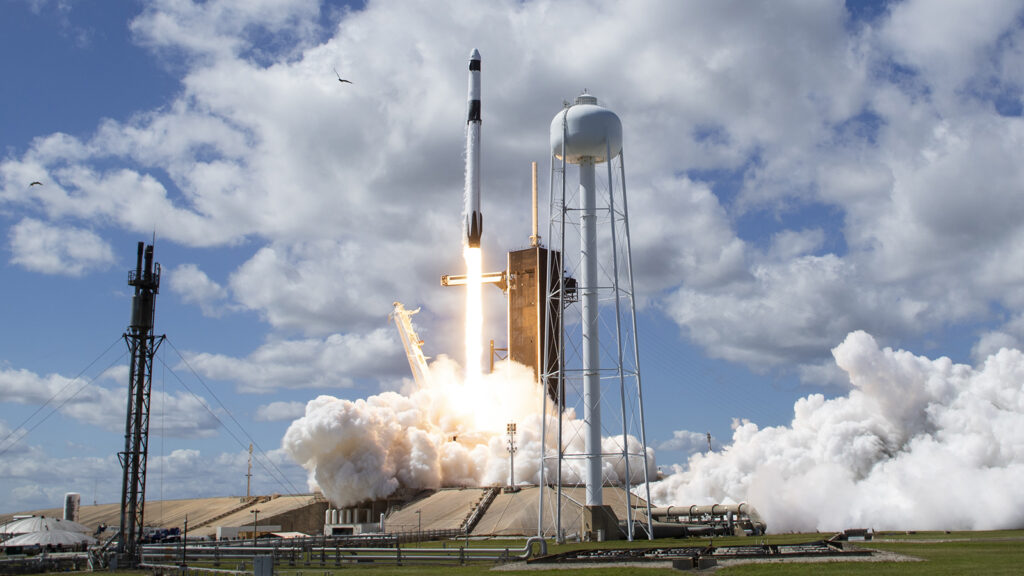
George Whitesides of Virgin Galactic believes that a new wave of human space flight innovation will capture the attention of the international public.
Photo: Pexels
While Earth-bound citizens grapple with quarantines, a new era of space exploration is blasting off. After years of only gradual expansion, emerging players and new technologies have reignited the space race in the 21st century.
While the Cold War spurred major scientific and commercial achievements, progress tapered off dramatically as government enthusiasm — and funding — for space exploration waned. But dramatic technological advances and lucrative business models changed the conversation, and private companies are making up for lost time. New investments and fresh private-public partnerships mean that booking a berth in space could happen sooner than we think. Countries like Japan, China, India and the United Arab Emirates are jumping in, too, expanding the borders of geopolitics.
George Whitesides, the chief space officer and former CEO of Virgin Galactic, a company founded by Sir Richard Branson in 2004 to develop commercial vehicles for space tourism, joined the Altamar podcast team of Peter Schechter and Muni Jensen to discuss the future of space travel.
The interview came on the heels of a major announcement: Virgin Galactic, in conjunction with NASA, is opening a private astronaut program with public accessibility. Previously, Whitesides served as NASA’s chief of staff after working on President Barack Obama’s transition team for the agency. He’s also served as the executive director of the National Space Society and is a sought-after adviser for companies and organizations such as the Federal Aviation Administration’s Commercial Space Transportation division, the Commercial Space Transportation Advisory Committee, the Space Generation Foundation and the Zero Gravity Corporation, among others.
Space for Everyone
According to Whitesides, Virgin Galactic seeks to “expand space access to everyone, so that it’s not just the province of professional astronauts; it becomes the province of you and I, and the benefits of space accrue to everyone.” Whitesides explained that partnerships between NASA and the private sector reignited public interest in space to levels unseen since the Apollo moon landing.
He said he predicts that “there’s going to be this wave of human space flight innovation coming up, and that’s something that really captures the attention of the American public and the international public.”
Whitesides explains the partnership between NASA and the private sector.
According to Whitesides, companies are taking advantage of “great technical trends that are driving innovation and playing out in the commercial interest,” such as developments that allow spacecrafts to be reused.
Reusable Craft
As he pointed out, “travel to Europe would be pretty expensive if every time you got on a 747, you threw away the 747 on the other side in London.” In turn, Whitesides believes that passenger travel to space could soon be a reality: “I think it’s on the order of months and it’s not years, so that’s really the main headline.”
It could expand rapidly after that: “We’re going through this weird, interesting and inspiring transitional moment where, in the past, very few people will have known an astronaut, or have known somebody who has gone to space, whereas going forward, most people will know someone who has been to space, and that’s an interesting transitional hallmark,” he said.
Whitesides explains that the number of people who have traveled to space could soon significantly increase.
Until recently, only a handful of companies and countries were large enough to invest in space. “This is the kind of thing that takes not just months, or even years; it takes decades sometimes to do these programs,” Whitesides said. But lower costs and more accessible technology are creating opportunities for new ventures.
Virgin Galactic and other private sector players are betting that space travel will pay off as people pay to realize lifelong dreams to visit space. Competition over customers for a rocket ship ticket is likely to be fierce: “Marshalling the resources to maintain efforts over the course of a decade or more is really challenging and requires either strong billionaire backers, or government resources or others,” he said.
The Ever-Present Issue of Geopolitics in Space
The intermingling of private and government funding in space has become no stranger to geopolitics, either. Between the United States, India, China, the UAE and countless other government-sponsored programs, space is not just becoming closer and cheaper — it’s also getting more crowded.
Although Whitesides thinks an actual space war is unlikely, he expressed caution over the potential for foul play. “Different national entities are working at how they can do really serious negative stuff in orbit,” he said. “There is no doubt there are a lot of nefarious shenanigans going on in orbit today between the Great Powers, and that is something … that’s driving the creation of the Space Force and other kinds of governmental responses.”
Whitesides explains concern about government operations in space.
Whitesides remains optimistic about the prospects of space travel’s impact on the world. “I think that what we’ve seen is that nations can retain friendly relations in space, even when they’re having pretty challenging relationships on the ground,” he said. “I think it’s good that humanity has these programs they can work together on, even through challenging times.”
Altamar is a global politics podcast hosted by former Atlantic Council senior vice president Peter Schechter and award-winning journalist Muni Jensen. To listen to the full episode, click here.








